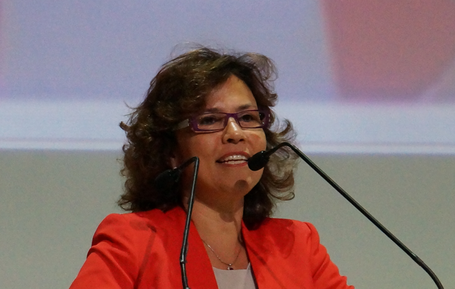
The 29th of November saw the launch of the first Policy Forum on Development, organized by the European Commission. In attendance were UCLG co-president and Mayor of Victoria, Jacqueline Moustache-Belle, as well as elected representatives from across the world and the Secretary Generals of UCLG, CEMR, UCLGA, UCLG Eurasia, FLACMA, and a representative of UCLG MEWA.
The aim of the Policy Forum on Development (PFD) is to enhance the Structured Dialogue on European Commission development cooperation that began in 2010 between European institutions, local authorities and civil society. During the debates, the upcoming Global Public Goods and Challenges programme and the challenges it must tackle were presented. There was also discussion of the preparation of the communication on the Private Sector in Development and the strategy of the ‘Civil Society Organizations and Local Authorities’ programme for the period 2014-2020.
At the Forum, there were contributions from representatives of the Lithuanian Presidency of the EU and the European Parliament. They highlighted that the Communication recognizes local authorities as partners in promoting decentralization, democracy, and territorial development.
In the opening speech, UCLG Co-President, Jacqueline Moustache-Belle, pointed out the progress that has been made in collaboration between the European Commission and local authorities, and her hopes that the PFD will deepen this collaboration and allow the implementation of the commitments made by the Commission. She called for debate in the Forum, not only on the European Development Agenda, but also on the international agenda, in particular the Post-2015 and Habitat III processes. She praised the work of the Global Taskforce of Local and Regional Governments in coordinating the work of local authorities across these international negotiations.
During the debates, it was made clear that, though the development cooperation budget is still being negotiated with the European Parliament, despite the economic crisis, the EC will meet its financial commitments to development cooperation.
Local authorities have proposed the establishment of a mid- to long-term agreement with the European Commission to support decentralization and strengthen local and regional governments, as well as their international networks across the world. This agreement, if it is reached, will allow progress on innovative models of cooperation, of benefit to local governments.










